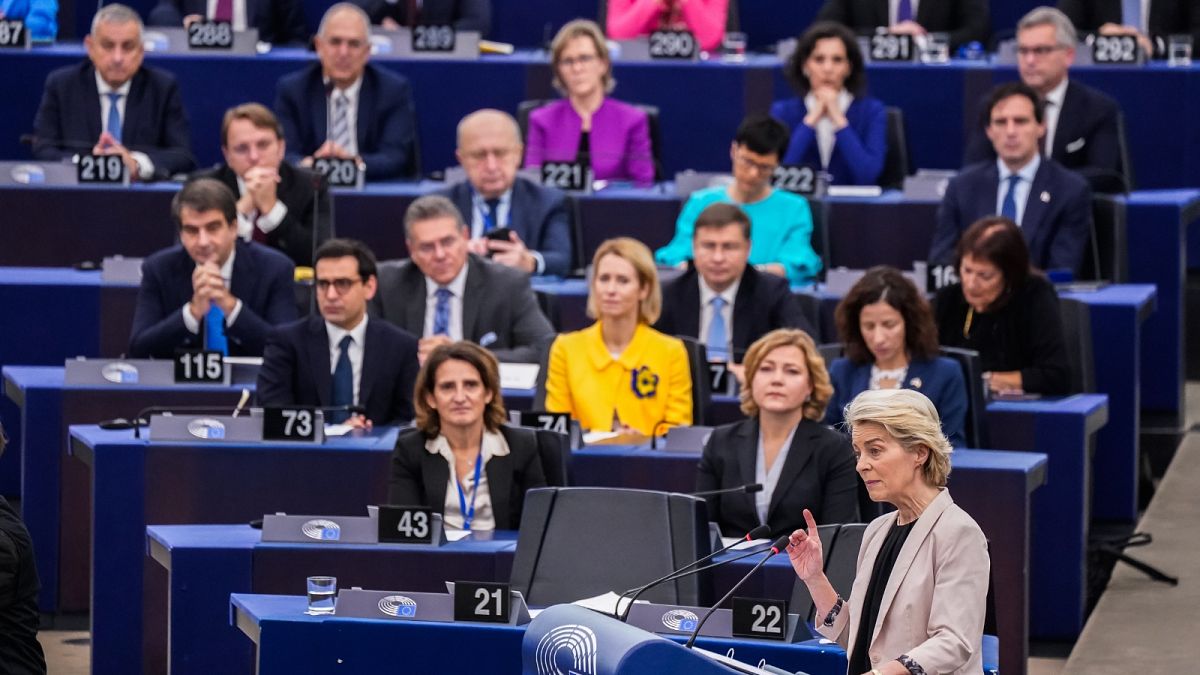The goal to have fewer than 5% of New Zealanders be smokers by the end of next year is “within reach”, but requires “renewed” efforts, Associate Health Minister Casey Costello says.
Costello launched a new Te Whatu Ora Health NZ action plan this morning which outlines the final push to achieve the long-running Smokefree 2025 goal.
The goal to have fewer than 5% of New Zealanders be smokers by the end of next year is “within reach”, Associate Health Minister Casey Costello says. (Source: 1News)
It sets out a “renewed focus for smoking cessation services, health promotion, and community mobilisation, while enhancing compliance and enforcement measures”.
“We know that these approaches have worked, so with re-invigorated focus on what we know has worked and a 13-month timeline we can deliver Smokefree 2025,” Costello said.
The Government has been under fire for its policies on smoking after it scrapped previous policies to ban the sale of tobacco products to anyone born after 2008.
Costello’s links to the tobacco industry have also been subject to heavy scrutiny.
The Associate Health Minister made the controversial decision to axe smokefree changes. (Source: 1News)
She said today: “New Zealand has had incredible success in reducing smoking rates with a decline in daily smoking from 16.4% in 2011/12 to 6.9% in 2023/24.
“Over the last five years, there’s been particular progress, with the Māori smoking rate halving, while smoking rates are lowest in our young people, signalling a generational shift away from cigarettes.
“This means that Getting to Smokefree 2025 is within reach — but we need to focus and renew our effort, especially to help people to quit smoking, and that’s what this plan is about. We want to reduce smoking rates and the harm from smoking.”
She said the plan involved initiatives “across the smokefree continuum”, including getting smokers to try and quit, improving access to quit smoking providers, and supporting people to stay smokefree by providing “the most effective” services and products.
She says she doesn’t know who wrote a note asking for advice on freezing the tobacco excise tax. The opposition is now calling for her to be sacked. (Source: 1News)
It also had a focus on stopping people from taking up smoking in the first place, she said.
Costello added: “New Zealand is one of the leaders in reducing smoking, and that approach is responsible for our progress to date.
“However, we need to reinvigorate our stop smoking efforts and we need to target the right people, especially older smokers and Māori and Pacific peoples, if we are to get the smoking rate below 5% by the end of next year.”
The Associate Health Minster said the plan “provided a work programme for those in the sector and would re-energise and focus on stop-smoking efforts”.
Advocacy group critical of Govt approach
Health Coalition Aotearoa spokesperson professor Chris Bullen criticised the Government’s approach in a statement shortly after the announcement, advocating for nicotine levels in cigarettes to be lowered with fewer retailers across the country.
Earlier this year, the advocacy group was a vocal opponent of the coalition scrapping of the previous government’s “smokefree generation” policy.
Bullen said: “To reach Smokefree 2025 for all New Zealanders we need to provide all the tools, like a reduction in retailers, denicotinisation and effective quit smoking support.”
He added that it was “simply unrealistic that quit services will achieve Smokefree 2025” without more government action to “make smoking less attractive and available”.
“It is ironic the plan, which includes a ‘renewed focus on smoking cessation services’ is being announced on the same day the National Public Health Service is cutting 55 roles and 300 current vacancies,” Bullen said.
“This, and the lack of a budget for the plan makes it hard to believe there will be any real improvement or expansion of those services.”
Spotlight on smoking
Costello’s announcement comes after the minister has previously come under scrutiny for the Government’s shifts on smoking policy.
Within months of the Government’s election, Labour was calling for Costello to be sacked over her handling of the portfolio. In the past several months, critics have panned Costello’s grounds for a tax cut for heated tobacco products.
Data shows vaping has overtaken smoking but smoking rates have now begun to rise for the first time in a decade. (Source: 1News)
Earlier this year, the previous Labour government’s planned anti-smoking law changes — which would have banned the sale of tobacco products to anyone born after 2008 — were repealed by the coalition under urgency in February, although most Kiwis did not want the legislation to be removed according to a 1News Verian poll.
Many health experts were also unhappy with the changes.
At the time, Costello said: “The last government was moving towards an untested regime that ignored how well quit smoking initiatives were working, and the potential downside of taking a prohibitionist approach for smokers, or for retailers and crime.”











